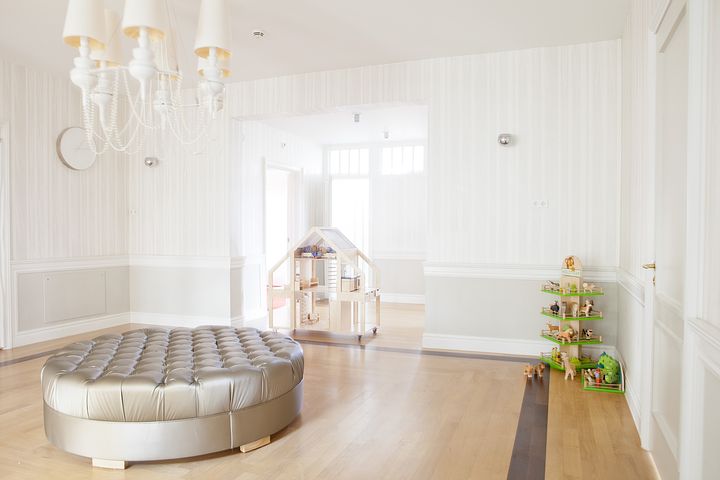
As a famous little frog once said, “It ain’t easy bein’ green,” but it’s getting easier all the time as manufacturers realize that going green is profitable. Using products that are safe for humans and kind to the earth is becoming increasingly popular, as can be seen by choices offered at stores everywhere.
Being green at home can sometimes, but not always, cost a little more, but making changes is worth the effort. What you eat, what your wear, how you spend your time all impact the planet. Here are some of the more popular myths about going green at home.
- Going green at home means going off the grid. While it’s true that going off the grid is a more extreme version of going green, you don’t have to do that in order to make some significant changes. Recycling, walking or bike riding and driving less, using cloth bags instead of paper or plastic are all small things that, when put together with the efforts of others, make a big impact.
- What I do won’t make that big of a difference. Definitely not true. Your contribution to the solution of pollution is critical to the health of the planet and the health of your grandchildren and great-grandchildren, and those who follow.
- Being Green is too expensive. There’s no doubt there are some changes you could make that would be pricey. On the other hand, using cloth bags instead of paper or plastic at the grocery store really won’t cost that much. Using a water filter instead of buying bottled water and adding to the plastic bottle nightmare also isn’t going to break the budget. There are many low cost ways to make a big impact.
- Turning off appliances stops energy drain. Not exactly. Have you heard of vampire power? It’s also known as standby power or energy leaks. When your appliances or devices are plugged in and on standby power they are still using energy. Computers, cell phone chargers, any appliance that displays time is guilty of sipping up energy even while off, so unplug to stop the energy vampires. You can make it simple by plugging into a power strip that you can turn off when items are not in use.
- Turning off lights when not being used saves energy. This is true even for the newer CFL bulbs. Because they are fluorescent some people believe they should stay on like their larger fluorescent tube relatives. It turns out that the energy used to turn the CFS on is negligible, particularly when compared to the amount of energy used when it is left on. So, if you don’t need it, then lights out!
- Taking a shower uses less energy than a bath. This is also true. A bath can use as much as 30 to 50 gallons of water. When compared to the 25 gallons used by a low-flow shower head, that’s considerable savings. You can even get a high-quality shower head that has an output of 1.5 gallons of water a minute which means a 10 minute shower would only use about 15 gallons of water.
- Organic, sustainable food is too expensive. These foods can be more expensive at the store, and you can probably find less expensive, organic, sustainably grown food at the local farmer’s market. Chances are your local farmer isn’t using the pesticides and herbicides used by the big companies. You also have the advantage of knowing who is growing your food.
- Hybrid cars are better for the environment. Not necessarily true. Manufacturing the cars is still done the same way, so that part of the carbon footprint doesn’t change much. Deciding if a hybrid car is better actually depends more on a person’s driving habits and how they plan on using the vehicle. A little compact Honda beats a large hybrid SUV when it comes to saving gas.
- Handwashing dishes saves energy. Again, it depends. Using one of today’s newer energy efficient dishwashers can actually be better for the environment. Very old models use more water, but today’s versions use a lot less. When you don’t use the heat or dry cycle, you save even more energy.
- Green living means going without the things we like. That depends on what things you like and how you like them. Environmentally friendly living doesn’t need to be about depriving yourself or your family. In fact, it can mean cleaner, healthier, more family-friendly living. And your descendants will thank you.
Going green at home means a lot more than recycling. It doesn’t need to be expensive or extreme, either. Doing a little research will help you find many ways your family can become more eco-friendly.
About Joanne Aubuchon
Joanne is a resident writer for SERVIZ, an on-demand home services company offering everything from Plumbing repairs to Carpet Cleaning across the US. Joanne is a writer by day and reader by night. Joanne loves writing about saving money, raising kids and improving the quality of our lives. When she is not writing, you can find her trying out new salad recipes, playing ball with her kids, or cheering in the stands at her son’s soccer games.





Leave a Comment